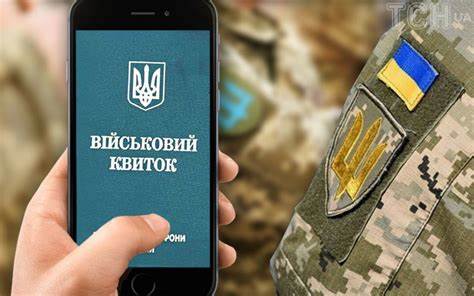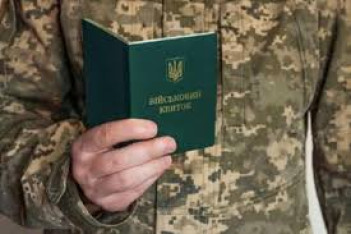How to apply for a deferment from mobilisation
Obtaining a deferment from mobilisation is an important legal process that requires proper preparation, legal analysis of documents and knowledge of the law. To protect their rights, servicemen must comply with all requirements and submit the relevant documents in a timely manner. In this article, we will look at the main aspects of obtaining a deferment from mobilisation, including the verification of documents by a lawyer, a legal opinion of a lawyer, legal analysis of documents and consultations with a lawyer.
The main steps for obtaining a deferment from mobilisation
The process of applying for a deferment from mobilisation includes several important steps. Here are the main ones:
- Preparation of documents. The first step is to prepare all the necessary documents confirming your right to a deferment. These can be medical certificates, documents on marital status or other grounds. A legal consultation will help you prepare these documents correctly, and a legal review of the documents will ensure their compliance with legal requirements.
- Applying to the military commissariat. After preparing the documents, you need to apply to the military commissariat for a deferment. A legal analysis of the situation will help you avoid mistakes, and a legal opinion of a lawyer can be decisive in considering your application.
- Legal support during the application process. It is important to provide legal support during the consideration of the application for deferral of execution to avoid possible problems or refusal. A legal analysis of the documents will help to identify shortcomings in time and correct them.
Peculiarities of applying for a deferment from mobilisation
The procedure for obtaining a deferral from mobilisation has its own peculiarities, depending on the grounds for deferral and the country's legislation. Here are some of them:
- Medical reasons. If the deferral is granted on the basis of medical reasons, all relevant medical documents must be provided. Consultation with your doctor and legal analysis of the situation will help you prepare the appropriate evidence.
- Family circumstances. A deferral may be granted for family reasons, such as the presence of minor children or dependent relatives. A lawyer's review of the documents will help confirm these circumstances, and a written legal consultation will help you better understand your rights.
- Other grounds. Deferred action may be granted on other grounds, such as education, work in critical industries, etc. A lawyer in Poland or an online lawyer will help you prepare the application and supporting documents correctly.
Legal advice and legal analysis of the situation
Consulting a lawyer is a key step in the process of applying for a deferment from mobilisation. The main areas of assistance include:
- Legal advice. An online lawyer can provide advice on preparing documents, submitting an application and undergoing a medical examination. A written consultation may be useful to clarify all the details.
- Legal opinion. A legal opinion from a lawyer will help you understand what steps you need to take to apply for a deferred action and how to avoid possible problems.
- Verification of documents by a lawyer. Legal analysis of documents and verification of documents by a lawyer will ensure that all the necessary paperwork is properly executed.
Typical problems when applying for a deferment from mobilisation
Various problems may arise when applying for a deferment from mobilisation, including
- Refusal to grant a deferment. This can happen due to insufficient documents or non-compliance of the grounds with legal requirements. Consultation with a lawyer will help to remedy the situation.
- Delay in processing the application. It may be due to a large number of applications or other factors. Legal support will help speed up the process.
- Incorrect paperwork. Non-compliance of documents with the requirements may lead to a refusal to postpone the application. Having your documents checked by a lawyer will help you avoid this.
The role of human rights organisations and lawyers in the process of obtaining a deferment from mobilisation
In addition to lawyers, servicemen and women can seek help from human rights organisations that provide free legal and advisory assistance in applying for a deferment.
Amnesty International. This organisation provides advice and legal support to servicemen and women in different countries, helping to protect their rights when applying for a deferment.
Legal clinics at higher education institutions. In many countries, there are legal clinics where law students, under the guidance of professors, provide free assistance to servicemen and women in applying for a deferment.
International organisations, such as the UNHCR. These organisations can provide support and assistance in the process of applying for a deferment, as well as protect the rights of servicemen and women at the international level.
Question.
How do I apply for a deferment from mobilisation and what documents are required?
Answer.
In order to properly apply for a deferment from mobilisation, you need to prepare all the necessary documents, apply to the military commissariat and provide legal support during the application process. Having your documents reviewed by a lawyer and consulting a lawyer will help you avoid mistakes and ensure that you successfully obtain a deferment.
Appealing against a refusal to grant a deferment from mobilisation
If you have been denied a deferment from mobilisation, you have the right to appeal this decision. A legal analysis of the situation will allow you to assess the legitimacy of the refusal and prepare the necessary documents for appeal. The legal opinion of a lawyer will be the basis for filing an appeal or complaint.
Important aspects of obtaining a deferment from mobilisation
The following aspects should be taken into account when applying for a deferment from mobilisation:
- Collection and proper execution of documents. It is important to have all the documents confirming your right to a deferment.
- Compliance with the requirements of military authorities and legislation. This is necessary when applying for a deferment and further interaction with the military authorities.
- Consultation with a lawyer. Legal support will help you avoid mistakes and ensure that you receive the deferment in a timely manner. Legal advice will help you prepare all the necessary documents and protect your rights.
Obtaining a deferment from mobilisation is an important step in ensuring legal protection for servicemen. Legal advice and a legal analysis of the situation will help you to properly prepare documents, appeal against refusals and ensure that your rights are exercised. Having your documents reviewed by a lawyer is a necessary step to succeed in this process.
































